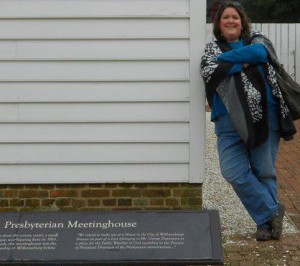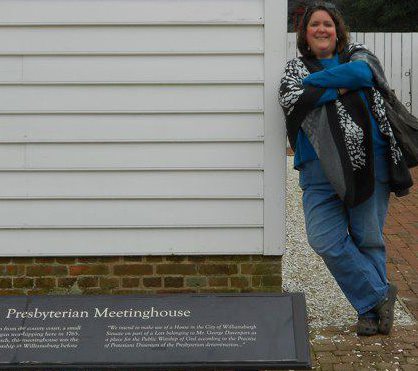Film: Modern Day Parables – Shasta Bode Brown

par•a•ble
[par-uh-buh l] noun
1. a short allegorical story designed to illustrate or teach some truth, religious principle, or moral lesson.
2. a statement or comment that conveys a meaning indirectly by the use of comparison, analogy, or the like.
Jesus was a storyteller, or better yet a parable-teller. He used these short stories to illustrate a point or truth about the Kingdom of God and our role within it. Parables about the Prodigal Son, the Good Samaritan and the Lost Coin are all part of our vocabulary as Christians. They are stories that many of us know by heart. They challenge our beliefs, convict us of our own short-comings and sins, they comfort us and give us a glimpse of the Kingdom yet to come.
In my opinion, we can use feature films as a form of modern day parables. Can Christ communicate, share a glimpse of the Kingdom, in the images of a film? In my opinion, yes, absolutely yes. Christ uses any number of modes, methods and techniques to impart wisdom and direction to us in this present day and age. Why not film?
For the most part the meaning of a parable of Christ was not transparent, it was hidden and had to be sought out. So often films can offer us that same challenge. Of course you can sit and watch a film and see only the images the director and cinematographer wanted you to see, or hear the dialogue the writer of the screenplay put on paper. Yet, I contend, if you look at a film with “different eyes” there are a multitude of God moments to encounter and things to learn about how to live as children of the Kingdom. Films can offer us glimpses of redemption, forgiveness, grace, the love of God for each of us and reconciliation. In films we can also encounter issues of racism, sexism, abuse, hate, love, peace and so much more. Film is ripe with opportunities to discuss our faith and the issues that surround it. However, in order to explore faith using films we must be willing to take risks. In Hearing a Film, Seeing a Sermon: Preaching and Popular Movies, Timothy Cargal states, “…one can only dialogue with a film if one is willing, at least, “for the sake of argument,” to take on its mind-set and risk that one’s own understanding of the world will be changed in the process.” (p. 17).
For example in the film Spitfire Grill we encounter the character of Percy, who is an example of grace and love faced with a female Christ figure. In the film, Finding Nemo, we witness time and again the love of the father for his child and the lengths he will go to in order to save/redeem that child. Realizing the value of human life and how each of us leave a mark on everyone we encounter is the theme of It’s A Wonderful Life. Forgiveness and redemption set against a backdrop of High School basketball is the film Hoosiers. Even on the battlefields of World War I, Christ is present and celebrated in the French film Joyeux Noel (you don’t have to speak German to be moved to tears during Stille Nacht/Silent Night).
So often we discount a film for theological discussion because it may be a film we consider “inappropriate” – Rated R, or containing violence, language, sexuality etc. These films must be considered as well, in my opinion, because real life isn’t sanitized and neat; it is messy and dirty and ugly and hard to look at sometimes. Film allows us to engage those issues and talk about them in a new context. We are forced to look at our own biases and prejudices as we consider who our neighbor is in the Oscar winning film, Crash. The language and violence in The Shawshank Redemption are appropriate for a film set in prison, and in many ways, these add to our joy at Andy’s redemption. In the closing scene of the powerful, Schindler’s List we are faced with the atrocities humans do to other humans and what happens when someone risks their life to make a change, as seen in this clip: http://www.youtube.com/embed/qIp_8RNNX4k
Films demand a response, any response – love, hate, joy, sadness, laughter, indifference – from us. How often after viewing a film do we talk “about” the things we saw and felt while watching it? I know for me, and my family, it is a given that there will be some kind of dialogue about the film, so why not use it to explore faith, spirituality, scripture, Jesus, life, morality and everything in between? Robert Johnston, in his book Reel Spirituality:Theology and Film in Dialogue, states, “Movies are modern parables. Christ used the mass media of his time. I think storytelling has always been the most effective way of getting the message across.” (p. 88) Movies are just another way of encountering the divine.
So, put on your “faith glasses” and watch a movie tonight. You might be surprised at what you see.
Shasta Bode Brown is the Director of Christian Education at First Presbyterian Church, Mount Airy, NC. She recently completed a Master’s Degree in Christian Education at Union Presbyterian Seminary in Richmond, VA. Shasta has a background in Public Health, including substance and sexual abuse counseling. She often invites her friends and church youth to her home for a weekly Bible study, which always includes a movie and popcorn.


Hi,I log on to your new stuff named “Film: Modern Day Parables – Shasta Bode Brown – Ecclesio.com” daily.Your writing style is witty, keep up the good work! And you can look our website about love spells cast.